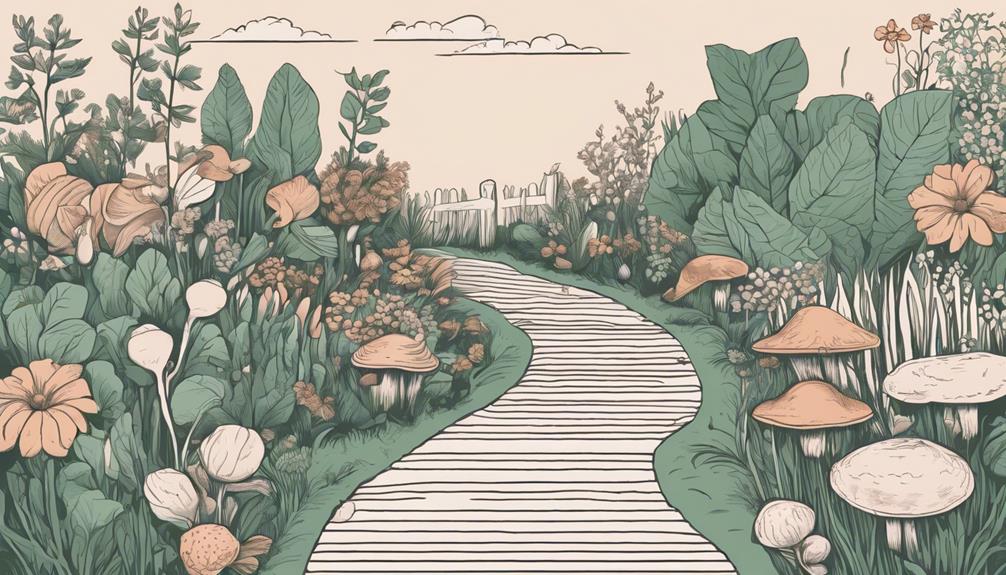How To Become More Self-Sufficient Without Starting a Full-Blown Farm…
Want to start preserving your harvest, making your own soap, or building a backyard root cellar — but not sure where to begin? “Homesteading Advice” gives you instant lifetime access to 35+ practical homesteading books on food preservation, veggie gardening, DIY natural cleaning products (save over $250 per year with this skill alone), brewing, off-grid energy, and a whole lot more…
Click Here To Check It Out Now!
“I’ve been struggling with slugs invading my garden and causing significant damage to my plants. I have a backyard farm where I grow various vegetables and herbs, but these slimy pests are making it challenging to maintain a healthy garden. I’ve tried a few remedies, but nothing seems to be working effectively. Can you provide detailed advice on controlling slugs in my garden?” Thanks, Linda, Seattle, USA.
How Do I Control Slugs In My Garden?
Slugs can indeed be quite a nuisance, Linda. They are notorious for feasting on tender greens, especially in gardens with lots of young plants and fresh leaves. But don’t worry, controlling slugs is doable with the right combination of strategies. Here’s an extensive look at how you can tackle the slug problem and protect your garden.
Understanding Slugs and Their Behavior
First, it’s useful to know a bit about slugs themselves. They are primarily nocturnal and thrive in moist environments. They can hide under rocks, leaves, and other garden debris during the day and come out to feed at night. Recognizing these patterns can help in targeting them more effectively.
Manual Removal
This might not sound glamorous, but it’s a straightforward and effective method:
- Evening Patrols: Check your garden in the evening or early morning when slugs are most active. Use a flashlight to spot and collect them manually.
- Hiding Spots: Place boards or overturned flower pots in the garden. The slugs will hide there during the day, and you can easily collect and dispose of them.
Barriers
Creating a physical barrier is a very effective way to keep slugs away from your plants:
- Copper Tape: Slugs avoid copper because it reacts with their slime and gives them a mild shock. Surround the base of your pots or raised beds with copper tape.
- Eggshells and Coffee Grounds: Crushed eggshells and coffee grounds are rough and unpleasant for slugs to crawl over. Scatter them around your plants to create a barrier.
Natural Predators
Introducing natural predators can help maintain a balance in your garden:
- Birds: Attract birds by providing bird feeders and nesting boxes. They’ll help eat slugs.
- Frogs and Toads: Create a small pond or water feature to attract these amphibians, which are natural slug predators.
- Beetles: Ground beetles are great slug hunters. Diverse plantings and mulch can create a welcoming environment for them.
Trap Methods
There are several traps that you can use to capture and remove slugs from your garden:
- Beer Traps: Bury shallow containers filled with beer at ground level. Slugs are attracted to the yeast and will drown in the beer.
- Grapefruit Halves: Place halved grapefruits face down in the garden. Slugs will be attracted to the moist, acidic environment and can be collected and removed in the morning.
Natural Alternatives
Using chemical-free methods can keep your garden organic and safe:
- Diatomaceous Earth: Sprinkle diatomaceous earth around plants. It’s sharp on a microscopic level and can physically damage the slug’s body, deterring them.
- Garlic Spray: Create a garlic spray by mixing crushed garlic with water. Spraying this solution on your plants can repel slugs due to its pungent smell.
Maintenance Tips
Keeping your garden clean and well-maintained can reduce slug habitats:
- Remove Debris: Clear away plant debris, dead leaves, and other garden waste where slugs might hide.
- Watering Schedule: Water your plants in the early morning. The soil will be less moist at night, which discourages slugs.
Plant Choices
Consider planting slug-resistant plants. These are less likely to be affected:
- Herbs: Rosemary, thyme, sage, and mint are typically avoided by slugs.
- Flowers: Slugs tend to stay away from ferns, foxgloves, and hydrangeas.
Choosing these varieties can reduce the attractiveness of your garden to slugs while still providing you with a beautiful and productive space.
Using Chemicals Wisely
As a last resort, certain chemical controls can be used, but always cautiously:
- Iron Phosphate Pellets: These are less harmful to other wildlife and can be used around edible plants. Slugs consume the pellets and stop feeding.
- Avoiding Harmful Chemicals: Stay clear of metaldehyde-based pellets, especially if you have pets or children, as they can be toxic.
Creating a Slug-Resistant Garden Design
Redesigning your garden might require some effort, but it can be a long-term solution:
- Raised Beds: These can reduce the number of slugs, as they find it harder to access the plants.
- Gravel Paths: Create paths with gravel or coarse mulch. Slugs avoid crawling over these rough surfaces.
Implement these strategies, and your garden will become far less inviting to slugs over time.
Final Thoughts…
Linda, thanks for sending in your question. Controlling slugs in your garden involves a multifaceted approach, including manual removal, creating barriers, using natural predators, and maintaining good garden hygiene. Each of these methods is designed to reduce the slug population and protect your precious plants. Remember, persistence is key, and with consistent effort, you’ll notice a significant improvement in no time.
Good luck with your backyard farm, and happy gardening!

